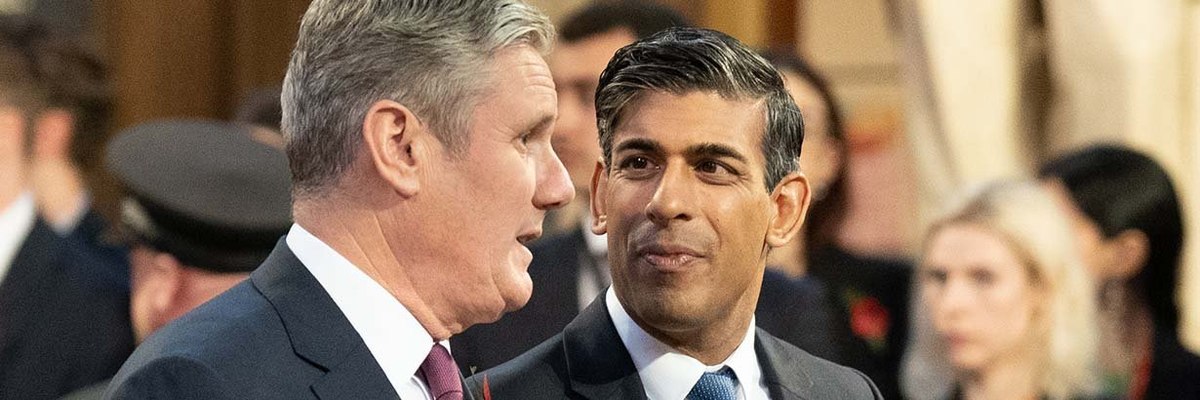Britons are most likely to see the parties as different on the economy, and least different on Israel-Gaza
At the beginning of the year, Labour leader Keir Starmer proclaimed there was a “huge difference” between his party and the Conservatives. Not all agree – that Starmer is a ‘diet Tory’ is a charge levelled by some sections of the left, as it was at his predecessor Tony Blair.
Nevertheless, Labour are reportedly committing to stick to the Conservatives’ tax and spending plans (another similarity with Tony Blair’s approach in opposition), and have come under fire recently for abandoning their flagship £28bn green energy investment pledge, which had been a key differentiation between themselves and their rival.
So how similar do the public see the two parties?
Almost half of Britons (47%) consider the two parties to be different, including 18% who describe them as “very” different. By contrast, 40% consider them similar (with 11% seeing them as very much so).
When it comes to policy areas, despite Labour’s promise to follow Tory fiscal rules, it is the rival parties’ approach to managing the economy that proves to be the biggest point of difference in the eyes of the public.
Most Britons (54%) believe the parties’ economic outlook is different, including 22% who say it is “very different”. By contrast, 28% see the two parties as similar on the topic.
The public are similarly likely to say the two main parties differ on asylum and immigration (53%) and welfare benefits (also 53%).
On the key topics of the NHS (49%) and the cost of living (48%) the public likewise tend to see the parties as taking differing approaches – 31% and 33% respectively believe them to be similar on these issues.
The policy area on which Britons are least likely to say the Conservatives and Labour differ is the Israel-Gaza conflict, with just 25% saying so. Four in ten (41%) consider the parties’ approaches to the war to be similar.
We’re not like them!
One stark finding from the survey is that 2019 Labour voters are substantially more likely than their Conservative-voting counterparts to see differences between the two parties and their policy stances.
At an overall level, 61% of 2019 Labour voters believe that the party is different to the Conservatives. By contrast, only 47% of 2019 Conservatives say the same – with an almost identical 46% considering the two main parties to be similar.
When it comes to specific policies, Labour are most likely to think the two parties are different on the cost of living (66%), the NHS (65%) and welfare benefits (65%). Conservative voters would tend to agree the parties differ on benefits (52%), although less so on the NHS (40%) and cost of living (43%).
Labour voters are least likely to think that the parties differ on the Israel-Gaza conflict, at 26%, and defence more broadly (37%). On this, Conservative voters agree at similar rates; 30% and 39% respectively.
That said, Conservative voters are least likely to think the parties differ on lesbian, gay and bisexual rights (25%), racial equality (25%), and climate change (27%). On this, Labour voters strongly beg to differ, with fully 50-52% saying the two parties have dissimilar approaches.
Photo: Getty







